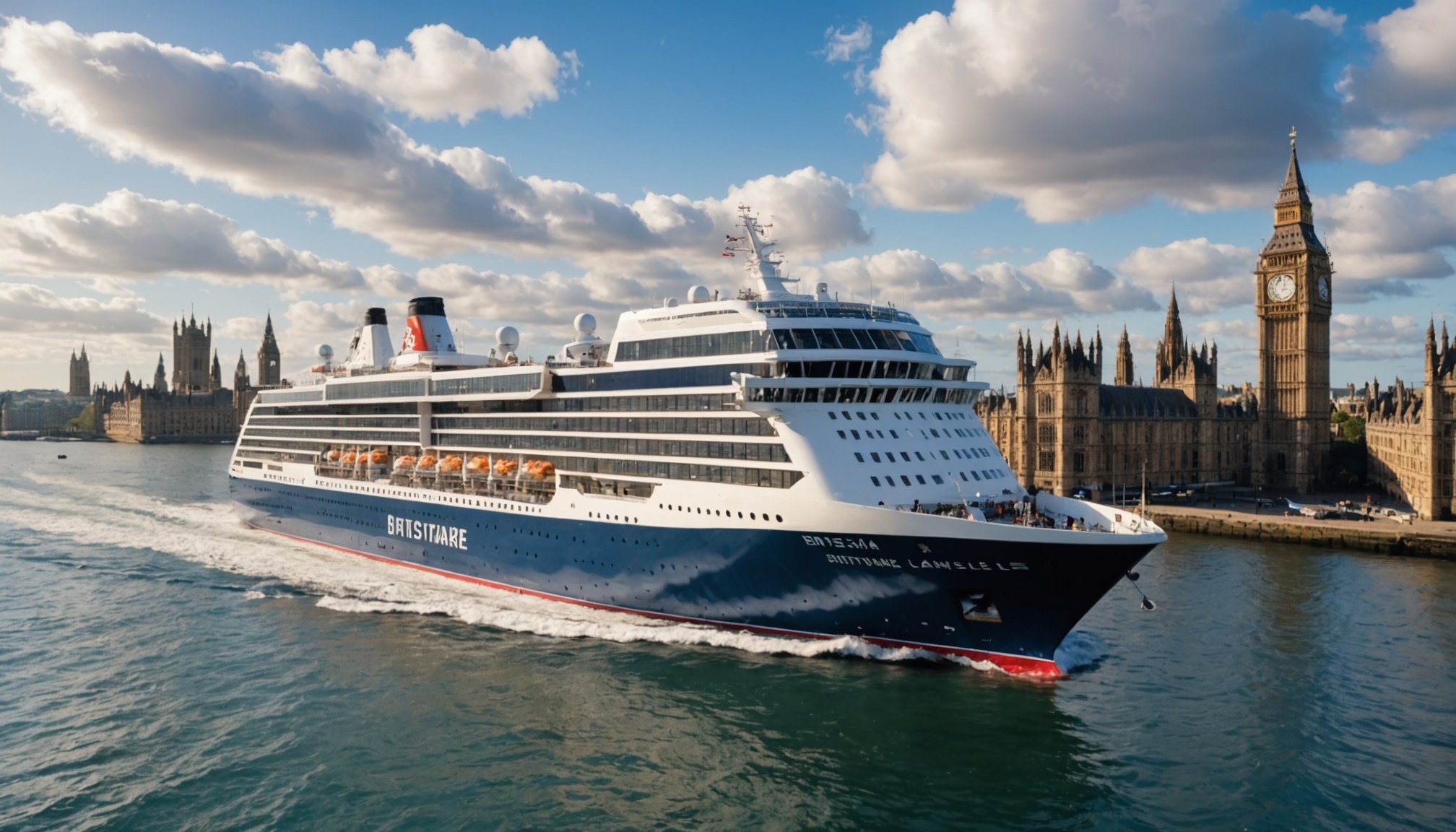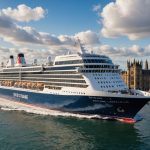Overview of Popular UK Cruises
When exploring the best UK cruises, several top-rated cruise lines stand out due to their exceptional service and diverse itineraries. These cruises offer unique experiences ranging from cultural excursions to breathtaking natural scenery.
A variety of cruise routes are available, allowing travellers to access some of the most scenic and historically rich destinations in the UK. Popular itineraries often include stops at iconic cities like Edinburgh, with its rich history and magnificent castle, and Liverpool, known for its vibrant music scene. Other noteworthy destinations include the rugged beauty of the Scottish Highlands and the serene landscapes of the Isle of Skye.
Also read : Discover the Premier UK Cruises for an Immersive Tour of British Literary Legends
Unique experiences onboard might encompass culinary tastings of local delicacies, onboard lectures about Britain’s maritime history, and exciting excursions to UNESCO World Heritage sites. These cruises not only offer relaxation and luxury but also immerse passengers in the local culture and history, providing an enriching journey through the UK landscapes.
Among the top cruise lines operating in the UK are P&O Cruises, known for their excellent service, and Cunard Line, which offers a touch of classic elegance and luxury. Whether you’re drawn to historical landmarks or serene natural beauty, UK cruises offer a wealth of unforgettable experiences.
Additional reading : Set Sail on an Unforgettable UK Cruise: Discover Iconic British Botanical Gardens with Expert Guided Tours!
Introduction to British Maritime Law
British Maritime Law forms the backbone of cruise operations and outlines essential protocols for passenger safety. This legal framework governs all activities at sea involving vessels under the UK jurisdiction. Historically significant, it originates from centuries of seafaring and trade, reflecting the UK’s maritime heritage and global outreach.
Key Components of Maritime Regulations
The Maritime Regulations encompass various aspects such as safety standards, passenger rights, and environmental protections. These regulatory components ensure that cruise operations adhere to rules that safeguard both travellers and the environment. Compliance with these regulations is mandatory for all cruise lines to legally operate in UK waters, ensuring that safety protocols are met.
Legal Framework plays a crucial role, especially for ensuring safety and addressing liability issues during accidents or incidents at sea. This is vital for maintaining trust among passengers, who expect robust legal backing for their protection. Among the components of maritime law are provisions for emergencies, crew qualifications, and vessel maintenance standards, all aimed at delivering a secure cruising experience.
By enforcing these rules, British Maritime Law not only protects passengers and environmental sustainability but also enhances the overall cruise experience.
Key Maritime Laws Affecting Cruises
Understanding how Maritime Laws for Passengers impact cruise experiences is crucial for a secure and enjoyable journey. These laws encompass Cruise Regulations that outline safety standards and passenger entitlements. By providing a structured framework, they ensure cruise lines maintain safety and operational excellence.
Passenger Rights Under Maritime Law
Under maritime law, passengers are entitled to several rights designed to protect their interests. This includes safety assurances, access to information, and the right to medical care. Cruise operators must adhere to these legal obligations, offering compensation in the event of disruptions.
Liability and Insurance for Cruise Operations
Cruise operators bear significant responsibility under maritime law concerning liability issues during accidents or incidents. They must possess adequate insurance to cover potential claims from passengers. This ensures that passengers are safeguarded financially in unforeseen circumstances.
Environmental Regulations Affecting Cruises
Cruise companies must comply with stringent environmental regulations to protect marine ecosystems. This includes waste management systems and emissions control. Ensuring adherence to these standards reflects the industry’s commitment to sustainable practices, crucial for maintaining the natural beauty surrounding UK cruise routes.
Practical Tips for Complying with Maritime Law on Cruises
Cruise passengers must understand how to ensure compliance with maritime law while enjoying their journey. For smooth sailing, it’s vital to understand the legal considerations that affect cruise travel. One primary tip is to acquaint yourself with the Cruise Regulations before departure. This includes understanding the Safety Standards set by the cruise line and ensuring that your travel insurance covers potential maritime incidents.
Reading legal documents before boarding can seem daunting, but it’s essential for protecting your rights. Pay particular attention to the terms related to passenger liability and cancellation policies. In case of discrepancies or questions, reaching out to your cruise line’s customer service can provide clarity on any legal obligations.
Furthermore, staying informed through reputable legal resources can aid in understanding updates to maritime law. Government websites and cruise-related legal forums are great starting points for obtaining reliable information. For those eager to dive deeper, publications specializing in UK Cruise Regulations can offer detailed insights.
By following these travel tips and maintaining awareness of existing legal structures, passengers can navigate the waters of cruise compliance with ease, ensuring a secure and enjoyable journey on UK cruise routes.
Resources for Further Information
Staying updated with maritime law is crucial for both passengers and cruise operators. Thankfully, a plethora of legal resources is available for those seeking to understand UK Cruise Regulations better. These resources offer valuable insights into the Legal Framework that governs cruise operations, ensuring both safety and compliance.
To start, governmental websites such as the UK Maritime & Coastguard Agency provide authoritative information on current maritime regulations and updates. These platforms are ideal for accessing legal documents and understanding the broader context of British Maritime Law. Additionally, they offer detailed guidelines on environmental protection and safety standards, ensuring cruises adhere to required protocols.
For those who prefer specialized publications, books and journal articles on maritime law offer comprehensive insights. These materials delve deeper into historical contexts and the evolution of legal standards impacting cruise itineraries.
Enthusiasts can join maritime law forums online, where they can discuss and share information, gaining insights directly from experts and professionals. Engaging with such communities not only provides a deeper understanding but also keeps you informed about regulatory changes impacting your cruise experience. Through these resources, cruises can be both safe and enjoyable, backed by robust legal understanding.










